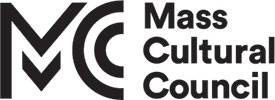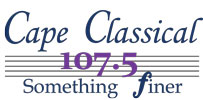Cape Symphony launches its 23|24 season at the Barnstable Performing Arts Center on Saturday, September 23 and Sunday, September 24 with “Fanfare: A Celebration of Unity.”
Cape Symphony
Farkhad Khudyev, Guest Conductor
Cape Symphony Musicians
Staff and Trustees
Table of Contents
Enjoy “Fanfare: A Celebration of Unity”
Program
FANFARE FOR THE COMMON MAN
Aaron Copland (1900–1990)
LINCOLN PORTRAIT
Aaron Copland (1900–1990)
FINLANDIA
Jean Sibelius (1865–1957)
Intermission
SYMPHONY NO. 3, “EROICA” (Heroic)
Ludwig van Beethoven (1770–1827)
About Today’s Program
"Music expresses that which cannot be said and on which it is impossible to be silent." – Victor Hugo
In the grand tapestry of human expression, music stands as a unique testament to our ability to communicate beyond words. It speaks to the deepest recesses of our emotions, connecting us across time, space, and differences. Cape Symphony's first Masterpiece concert of the season is a celebration of this unity, a harmonious gathering of monumental compositions that resonate with the essence of collective human experience.
Fanfare for the Common Man
Aaron Copland (1900–1990)
The opening notes of Aaron Copland's "Fanfare for the Common Man" immediately summon a sense of grandeur and significance. Composed to mark the entry of the United States into World War II, this piece carries a message of hope and solidarity in a fight for freedom. With its triumphant brass fanfare and vibrant orchestration, Copland's composition pays homage to the strength and resilience of ordinary individuals who come together to face extraordinary challenges.
To the suggestion that “Fanfare for the Common Man” be premiered in 1943 near the deadline for income tax returns, Copland is said to have responded “I am all for honoring the common man at income tax time.”
This piece has traditionally played as workers raise the ball at Times Square in preparation for New Year’s Eve festivities. It was played at Los Angeles International Airport as Space Shuttle Endeavor touched down after its final flight in 2012, and by the New York Philharmonic at the 2014 dedication of the 9/11 Memorial and Museum in lower Manhattan.
Lincoln Portrait
Aaron Copland (1900–1990)
In "Lincoln Portrait" (1942), Copland's music serves as a canvas for the spoken words of one of America's greatest leaders, Abraham Lincoln. The powerful narration, combined with Copland's evocative score, paints a portrait of Lincoln's wisdom, courage, and unwavering commitment to the ideals of a united democracy. Based in part on folk songs from Lincoln’s time, this music reminds us that even in times of strife, great leaders who champion freedom can inspire unity and progress. Nobody embodies this more definitively than Lincoln.
“Lincoln Portrait” is said to have deeply affected the audience at its Venezuelan premiere in 1957. Argentine actress Juana Sujo narrated the piece at this performance so passionately that people were inspired to publicly demonstrate against the repressive regime of President Marcos Pérez Jiménez. Jiménez was deposed and fled the country not long afterward.
Finlandia
Jean Sibelius (1865–1957)
"Finlandia" (1899) is an anthem of national identity and freedom. Written during a period of political upheaval in Finland, which was then a Grand Duchy under Russian rule, “Finlandia” played a role in the Press Celebrations of 1899, a covert protest against increasing censorship by the Russian Empire.
The piece captures the struggle for independence and the unyielding spirit of a people seeking unity in their aspirations. Its sweeping melodies and dramatic swells evoke a sense of determination and collective strength, serving as an ode to the power of a community united behind a common cause.
To escape censorship, “Finlandia” was performed under alternate names, such as the clearly innocuous “Happy Feelings at the Awakening of Finnish Spring.” Who could object to that?
Symphony No. 3, "Eroica" (Heroic)
Ludwig van Beethoven (1770–1827)
Ludwig van Beethoven's Symphony No. 3, commonly known as the "Eroica" (1803-1804), is one of his most celebrated works, and the cornerstone of Cape Symphony’s first Masterpiece concert of the season. Simply put, “Eroica” revolutionized the symphonic form, breaking boundaries of length, harmony, emotional scope and cultural content. It is considered a landmark in the transition between the Classical and Romantic eras.
This symphony mirrors the complexities of the human experience. Bold thematic statements and dramatic shifts convey a wide and unprecedented emotional range. Beethoven sought to capture the spirit of heroism and human potential that resides within every individual. Through sweeping melodies and dynamic contrasts, "Eroica" serves as a testament to the enduring power of human determination and unity.
Beethoven first dedicated this symphony to Napoleon Bonaparte, whom he believed to embody the heroic democratic and anti-monarchical ideals of the French Revolution. When Napoleon instead declared himself Emperor of France, Beethoven was bitterly disappointed, declaring “Now, too, he will tread under foot all the rights of Man!” and furiously scratching Bonaparte’s name from the score.
The earliest performances of this symphony were private affairs in the Vienna palace of Beethoven’s patron Prince Lobkowitz. Reviews of public premieres in Vienna, London and Boston were mixed. Connoisseurs recognized a masterpiece, while the public reportedly found it too difficult and too long. The general sentiment of the time was that if you love Beethoven, you’ll love this; otherwise, you might squirm in your seat (“Eroica” is about twice as long as the symphonies of Haydn and Mozart).
As you immerse yourself in the sounds of "Fanfare: The Power of Unity," let these compositions remind you that music transcends barriers, offering a shared language that connects us all. Through the masterful compositions of Copland, Sibelius, and Beethoven, we are invited to reflect on the strength of unity, the resilience of the human spirit, and the timeless messages that music conveys when words fall short.
Please note the program is subject to change.
Enjoy “Fanfare: A Celebration of Unity”
Join Cape Symphony for “Fanfare: A Celebration of Unity” on Saturday, September 23 at 7:30 PM and Sunday, September 24 at 3:00 PM at the Barnstable Performing Arts Center, 744 West Main Street, Hyannis MA 02601. A pre-concert talk will begin an hour before each performance.
To purchase tickets, visit capesymphony.org, call the Box Office at 508-362-1111, email
With thanks to Wikipedia and fdrlibrary.org.


























